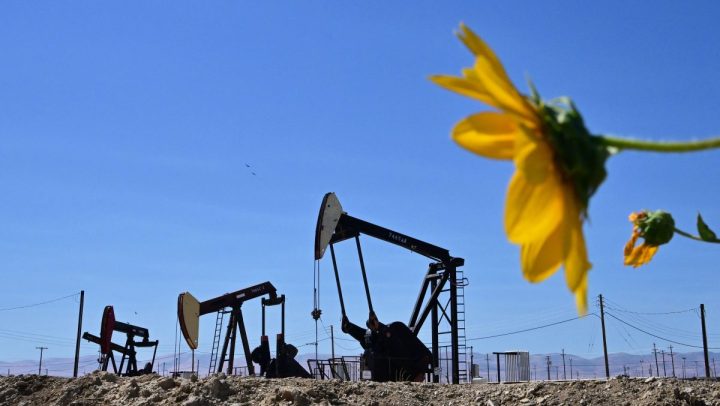
Big banks are succeeding at turning a profit, struggling to meet climate commitments
Big banks are succeeding at turning a profit, struggling to meet climate commitments

Big banks seem to have been making bank lately, according to recent quarterly earnings reports from CitiGroup, JPMorgan Chase, Wells Fargo, Charles Schwab and Bank of America.
Theoretically, an upswing in profits could better position banks to make good on their commitments to greenhouse gas reduction. But as two recent studies show, the biggest banks are still not doing enough to meet the goals of the Paris Climate Agreement.
Banks themselves don’t emit exorbitant amounts of greenhouse gas, but they play a big role in financing industries that do, like fossil fuel companies. And banks are under pressure to set climate goals.
A new report from the nonprofit Ceres looks at the largest U.S. banks and how they plan to help reduce emissions from oil and gas by 2030. The biggest banks have work to do, said co-author Blair Bateson.
“None of the six banks’ targets for 2030 put us on the pathway for this global goal that we need to achieve,” he said.
The goal is to prevent more than 1.5 degrees Celsius of warming. Banks aren’t necessarily on the wrong path, “Just that they need to go further and faster,” Bateson said.
“Since the Paris Agreement went into effect in 2016, banks have poured $5.5 trillion into fossil fuel companies,” said Shawna Foster with the Rainforest Action Network, a nonprofit that collaborated on a recent annual study looking at the world’s 60 leading banks and their relationships with over 2,000 fossil fuel companies.
“Banks at first were like, ‘Well, we have nothing to do with this. We’re just neutral servicers of the economy, and, you know, whatever the market wants, that’s what we finance,'” Foster said.
But now bank leaders are responding to pressure from shareholders and customers, she said — even if they are slow to make meaningful change.
Galina Hale, an economics professor at the University of California Santa Cruz, said that for the bigger banks reporting strong profits right now, “It might be easier for their boards to approve changes towards more sustainability.”
But banks really shouldn’t need soaring profits to act on climate goals, Hale added, if they see those actions not as a sacrifice but rather as a bulwark against future loss.
If banks over-invest in fossil fuels, “Then they’re going to suffer consequences in terms of profitability later on,” she said.
Some banks, like Citi, say their 2050 emissions reduction targets for their most carbon intensive sectors do align with the 1.5 degree climate scenario.
“So far we have developed targets for our energy portfolio, power, automotive manufacturing, commercial real estate, steel and thermal coal mining,” said Val Smith, Citi’s Chief Sustainability officer.
The pressure for that has come from investors, Smith said, as well as Citi’s own employees and even some fossil fuel companies who want to green their portfolios for their own bottom line.
For consumers shopping for a bank based on its climate record? The Securities and Exchange Commission is working on a rule that would require all publicly traded companies to disclose their climate change risks.
There’s a lot happening in the world. Through it all, Marketplace is here for you.
You rely on Marketplace to break down the world’s events and tell you how it affects you in a fact-based, approachable way. We rely on your financial support to keep making that possible.
Your donation today powers the independent journalism that you rely on. For just $5/month, you can help sustain Marketplace so we can keep reporting on the things that matter to you.


















